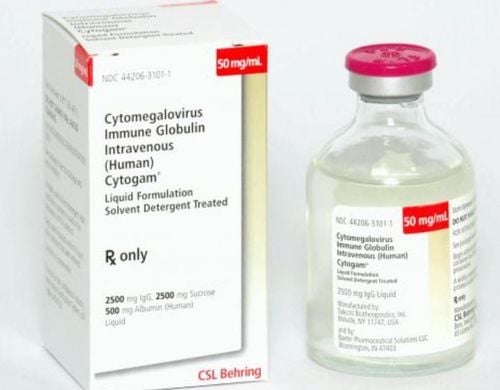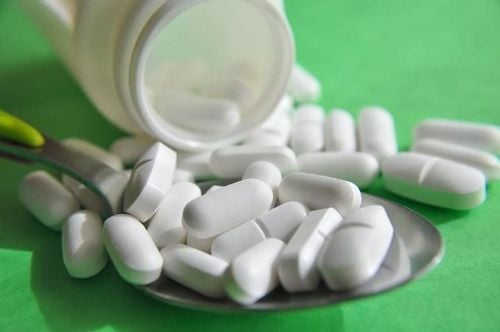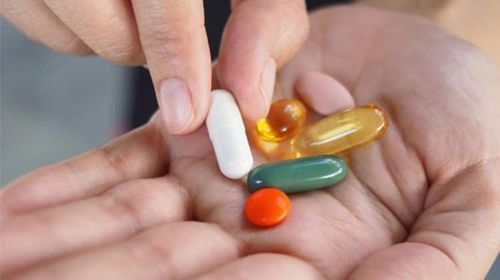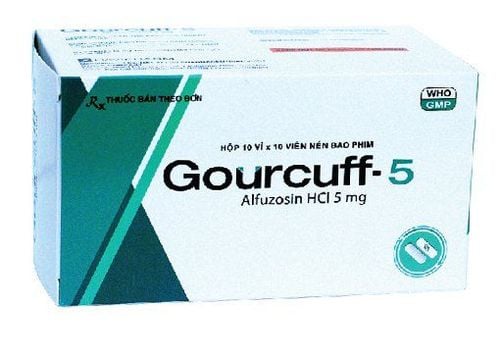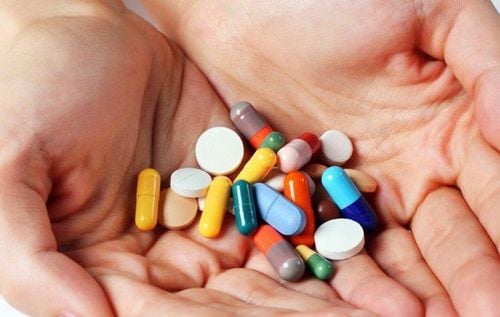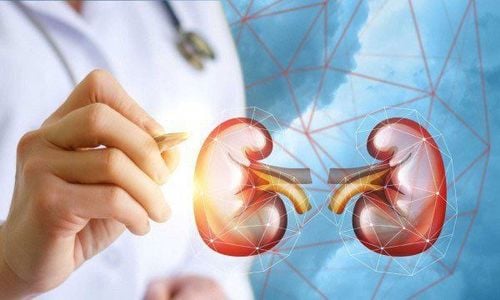This is an automatically translated article.
Transplants have the potential to lead to a more active and longer life, free from the limitations of routine dialysis and diet. However, the new kidney will need lifelong care and periodic re-examination, taking anti-rejection drugs regularly, at the right dose, at the right time as prescribed by the doctor to prevent transplant rejection, this is a common complication. and most importantly after kidney transplant.1. Success factors contributing to anti-rejection after kidney transplant
The success of kidney transplantation depends on many factors, the most important of which is the recipient's immune response to histocompatibility antigens - present in the donor but absent in the recipient. The aim of selection is to identify immunological mismatch factors that lead to transplant rejection. Some elements are now perfectly identifiable. Histocompatibility antigens - are genetically determined on the surface of molecules and vary from person to person.The HLA system is one of the most polymorphic genetic systems located on the short arm of chromosome 6. The HLA region consists of 3 genes. Genes coding for serologically defined class I antigens: HLA-A, B and C. Genes coding for antigens are determined by characteristics of class II lymphocytes. HLA-DR. Finally, the group of genes encoding factors C2, C3 and factor B of the complement system. Obviously, other genes coding for antigens important in grafting have not been identified.
The effectiveness of the HLA-A,B group is very important in transplantation where the donor is still living in the same bloodline. The role of the HLA-A,B system is less clear in cadaver kidney transplantation than that of HLA-DR. Incompatibility in the ABO system is an absolute contraindication to transplantation. In contrast, the role of Rh antigens is not large in kidney transplantation.
2. Why is kidney transplant rejection?
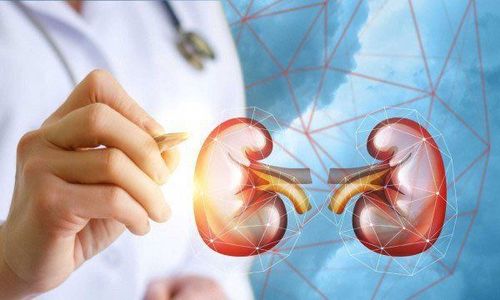
Tại sao lại có hiện tượng ghép thận bị đào thải?
Humoral rejection: Due to the presence of anti-tissue antibodies in the recipient's body, after a single visit exposure to antigens (after pregnancy, after a single transplant, after a blood transfusion...). Cell rejection: An immune response to a graft occurs when there is an incompatibility between the two human leukocyte antigen (HLA) systems in the major histocompatibility complex (MHC) of the donor and recipient. Interactions between the junctions and the polypeptide of T helper cells initiate the immune response. In clinical transplantation, type A, B and DR antigens are most important. These HLAs are of decisive value in selecting donors and recipients in organ transplantation, because they are related to the success rate of transplant surgery. Type II HLA plays a central role in initiating the response to the graft. The presence of these antigens activates helper T lymphocytes (CD4+), which activate the rejection chain. Our body's immune system protects the body from attack by foreign substances. Antibodies are made by specialized white blood cells in our body. The combination of the action of antibodies and other cells in the immune system against the donor tissue is called 'rejection'. This is how the immune system tries to destroy the newly transplanted kidney.
Acute rejection tends to occur during the first few weeks or months after the transplant. Chronic rejection usually begins a year or so after the transplant and can be very slow and requires a more difficult course of treatment. Most chronic rejection conditions have treatment, and most are successful.
3. Types of rejection after kidney transplant
Various forms of acute rejection can occur after kidney transplantation, especially during the first 3 months after transplantation. Long-term cellular immunity has been implicated as the main mechanism of rejection, with immunosuppressive strategies focused primarily against T lymphocytes. Recently, humoral immunity or immunity Cell-mediated rejection has been shown to cause some early and severe acute rejection, despite negative pre-transplant cross-reactivity.3.1 Fulminant rejection (English name is hyperacure rejection) Caused by:
Presence of cytotoxic antibodies with high concentrations in the recipient's serum, against donor antigens (most importantly, HLA antigens) are usually expressed on endothelial cells of the grafted kidney. Fulminant rejection is essentially immediate and severe humoral rejection, occurring due to the presence of: Anti-HLA antibodies in the recipient, presence of blood transfusions, pregnancy, or previous organ transplantation. Anti-ABO antibodies in blood group incompatibility. Antibodies to non-HLA antigens, such as MICA or other antigens, are present on endothelial cells. 3.2 Acute humoral rejection The clinical presentation of acute humoral rejection is usually severe renal dysfunction, seen in two situations: (i) delayed transplant kidney function in the presence of circulating antibodies anti-donor specificity at the time of transplantation (despite low antibody titers), and (ii) early and severe acute rejection (or accelerated acute rejection). However, episodes of acute humoral rejection can occur in different clinical situations, at different times, sometimes late after transplantation, due to non-adherence to immunosuppressive therapy, during reduce the dose of immunosuppressants, or when treated with interferonα in hepatitis C virus infection. Therefore, acute humoral rejection should be considered in cases of acute transplant renal dysfunction at any point in time. post-transplant, especially when renal dysfunction is severe.
3.3 Acute T-cell mediated rejection This is the most common form of rejection, usually occurring between the 10th and 3rd day post-transplant.
Symptoms of generalized fatigue, fever, graft pain (due to inflammatory reaction of the peritoneum around the transplanted kidney), hypertension, with or without oliguria. In the early post-transplant period, a relatively high level of serum creatinine may show a stagnation, even though kidney function is improving before that.

Mệt mỏi toàn thân, sốt, đau thận ghép là triệu chứng của Thải ghép cấp tế bào
4. Some notes for patients after kidney transplant to avoid rejection after kidney transplant
Rejection is a normal response of the patient's body after a kidney transplant, so the patient needs to take anti-rejection drugs regularly as prescribed by the doctor. Here are some tips so you never forget to take your medicine:Always remember to take your medicine as part of your daily routine. Use an electronic clock and set an alarm to take your medicine. The patient must know the name of the drug, the time to take it, and the effect of each drug. Ask carefully and review the instructions for any dose changes. Report to the doctor for post-transplant monitoring of drug levels when going for examination and testing. When you are prescribed by a doctor to treat any other disease, you must consult with your doctor for post-transplant follow-up to make sure that the drug does not affect the effect of anti-rejection drugs. Continue taking your anti-rejection medication even if you feel completely healthy. Discontinuation of the drug is the cause of transplant rejection. Side effects of antirejection drugs: Weight gain, high blood pressure, increased risk of infection, and increased risk of cancer. Patients should inform their doctor when there are any changes in the body.
5. Information on anti-rejection drugs after kidney transplant

Hiện nay, để điều trị chống đào thải thận sau ghép, người bệnh thường được chỉ định thuốc Tacrolimus
Currently, to treat renal rejection after transplantation, patients are often prescribed Tacrolimus, a macrolide (macrolactam) extracted from treptomyces tsukubaensis, with strong immunosuppressive effects. This is a product belonging to the group of immunosuppressants, it will act on making the immune system weakened so that the body can adapt to the newly transplanted organs. Medicines come in two forms, injectable and oral. If the patient cannot use oral medication, the doctor will intervene by using injectable drugs, but then will switch to oral medicine for more convenience.
In Vietnam, Vinmec International General Hospital has introduced Tacrolimus into its system to ensure that patients can use the appropriate tacrolimus dose regimen to optimize treatment effectiveness and minimize the risk of transplant rejection. as well as limit the unwanted effects of the drug. Therefore, the hospital will help patients after kidney transplant improve their quality of life and maintain the daily routine that the patient used to have.
Please dial HOTLINE for more information or register for an appointment HERE. Download MyVinmec app to make appointments faster and to manage your bookings easily.




